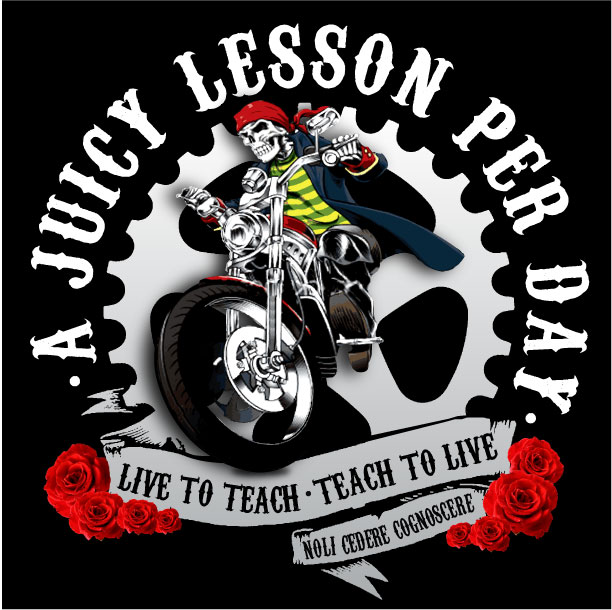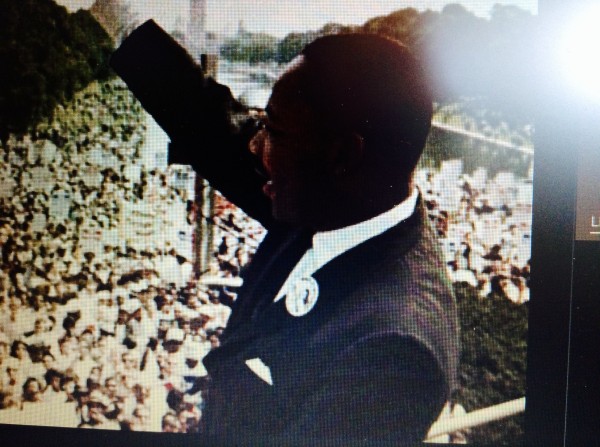Today is the day of Nelson Mandela’s memorial service in South Africa; and I believe that a discussion of the impact made by three of the most remarkable people of the twentieth century (yes, I know we have moved on into the twenty-first century but so what?) – Nelson Mandela, Martin Luther King and Mohandas Gandhi – is not only appropriate but also in order.
There have been, I am certain, other important news makers in the time period under discussion, but I am totally at a loss to come up with the names of persons who have had a more positive impact on the progress of the human race than Nelson Mandela, the Reverend Martin Luther King,jr. and the Mahatma (Great Soul) Gandhi.
Instead of turning the anger they must have felt into forces of destruction, these three heoric men all managed to live dignified, honourable, productive and outstanding lives regardless of their respective trials and tribulations.
All three were jailed during their lifetimes: King was arrested on about thirty different occasions and it was during one of his incarcerations that he penned his Letter from a Birmingham Jail*. Mandela did a twenty-seven year stretch at Robben Island near Cape Town while the Mahatma was in and out of jail for a good part of his adult life as a result of his campaigns of passive resistance (“satygraha” in Hindi) to British domination of India’s political system and economy. Regardless of how they and their followers were treated by their respective governments, all three of these heroes seemed to gain strength from being oppressed and turned any hostility they may have felt by virtue of their disgusting treatment at the hands of the powers that were into forces to be reckoned with for, respectively, the white racists in South Africa, the British imperialists ruling the Indian subcontinent, and the American government.
Dr. King, arrested around thirty times, focused his dignified non-violent struggle on the racist system of legal discrimination in the United States in the 1950’s and sixties. *In his Letter from a Birmingham Jail, King argued that the ruled have the moral responsibility to break unjust laws, (Wikipedia) similar to the Social Contract theory espoused by seventeenth century political philosopher John Locke which stated that people who are oppressed by their ruler not only have the right to revolt against him but even the responsibility to do so.
As with Mandela’s fight against the system of apartheid, King’s struggle coalesced around trying to bring to an end a social and political system which defined a person’s worth by the colour of his/her skin. In both of their life’s work, they devoted themselves to passively resisting the inequitable governmental systems which either by law prohibited blacks from voting as in S. Africa, or made it difficult for non-whites to register to vote as in the United States. In the U.S. case, blacks were subjected to much more complex so-called literacy tests than were potential voters of the white race.
Gandhi and Mandela were supported by the majority of the populations in their respective nations, while King had the backing of most of the black minority in a country both ruled and dominated by a totally objectionable white majority.
How did these three men fight for what they believed was just? Gandhi’s methods as well as those of King revolved around the notion of passive resistance, as I have already said. Gandhi strongly believed that one way to get the British out of India of was to make it not worth their while economically to remain as rulers in India. For instance, India’s supply of raw cotton fed the textile factories in England and Gandhi decided that all of India should spin its own thread and then weave this thread into cloth, thus depriving Great Britain of an important market for its finished textile products. On most days Gandhi would make time to spin thread with a simple wheel, thus providing a role model for his supporters in India.

Gandhi was such a beautiful person that he felt the need to make a special trip to textile workers in Lancastershire in England who were being disadvantaged job-wise by virtue of the Indian boycott of their textile products – shirts for example – specifically to say that he was sorry for their predicament. For his audience with British King George, Gandhi appeared dressed simply in his usual attire. When questioned about this by the king, Mahatma responded with words to the effect that His Majesty was wearing enough clothes for the both of them – a humble man with a sense of humour too.
King too organized and directed boycotts in response to situations of racial tension in the Deep South. When a tired Rosa Parks refused to move to the back of a bus in Alabama that set off a sequence of events where blacks walked rather than rode buses for a complete year as well as boycotting white-owned businesses in Montgomery. Things returned to “normal” when white businesses, feeling the economic sting resulting from not being patronized by the black community, put pressure on their decision-makers to allow blacks to sit anywhere they wanted on the buses in Montgomery. As well the U.S. Supreme Court declared racial segregation in the Montgomery and Alabama transit systems to be unconstitutional. As with the South African system of apartheid, de jure racial segregation existed in public facilities like restaurants, water fountains and restrooms.
Although eschewing violence, all three of today’s heroes and the masses of their followers and supporters were in fact victimized by it. From being attacked by police dogs and having fire hoses turned on King’s followers, to the Amritsar Massacre in India, to all kinds of violence perpetrated by their Dutch-descended government in South Africa, the people “fighting” for their legitimate rights were subjected to injury and death. Yet their leaders themselves, these three remarkable men, seemed immune to that type of violent behaviour.
Two of these trailblazers – King and Gandhi – saw their lives ended tragically by an assassin’s bullet. King was murdered by James Earl Wray in 1968 in Memphis Tennessee, and Gandhi met his end at the hands of an irate Hindu, Nathuram Godse, who murdered this beautiful espouser of non-violence (“ahimsa”) because he believed that the Mahatma had disrespected Hindus because Mr. Gandhi had not thrown his support behind the proposed partition of the Indian subcontinent, eventually carved up into two countries – India for the Hindus and West and East Pakistan for the Moslems. Gandhi was of the strong conviction that India should not be divided, believing, as Mandela would later, that unity was the best policy and that dividing up the subcontinent would be a huge mistake which it may or may not have turned out to be.
On the negative side, in addition to the deaths and other violent acts which occurred in the period immediately preceding partition, a 1971 civil war broke out between West and East Pakistan. India militarily supported Bangla Desh (East Pakistan) in this conflict which is estimated to have been the second shortest conflagration in world history – only the Six Day War between Israeli and Arab forces in 1967 was of shorter duration. The civil war lasted a mere thirteen days, but still ended up killing between two and three million Bangladeshi civilians; in addition, an estimated 400,000 women were raped by Pakistani forces, and between eight and ten million people fled Bangla Desh for Eastern India, to the region around Calcutta to be precise. In addition around 90,000 members of the Pakistani armed forces were taken as prisoners of war by the Indian army. The aforementioned flight of millions of people from Bangla Desh to India immediately prior to and during the fighting “placed an intolerable strain on the already over-burdened Indian economy.” — Wikipedia
Those of you who read my JuicyLessons regularly may remember that I was actually in India when that civil war between the two Pakistans broke out, and it wouldn’t have happened at all if the subcontinent had remained in tact as per Gandhi’s wishes instead of being partitioned.
To be continued…
PEACE OUT. REALLY and TRULY.



2 responses to “JuicyLesson #80: Mandela, King and Gandhi”
Really enjoyed this one.
Thanks for your input, Joan. Just goes to show that what I think will be good sometimes is not and what I think won’t pique the interest of my readers sometimes does. Keep your comments coming.